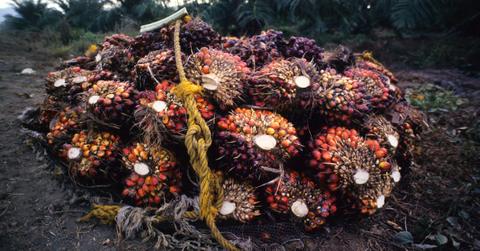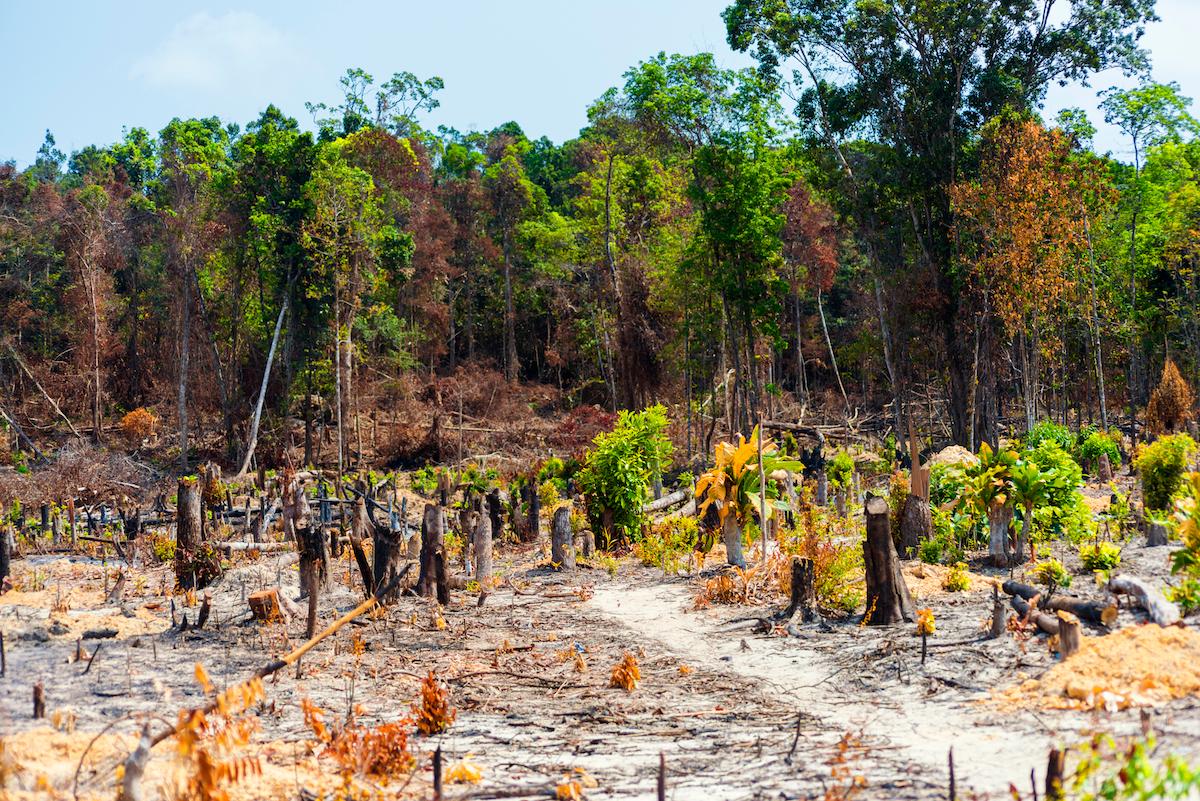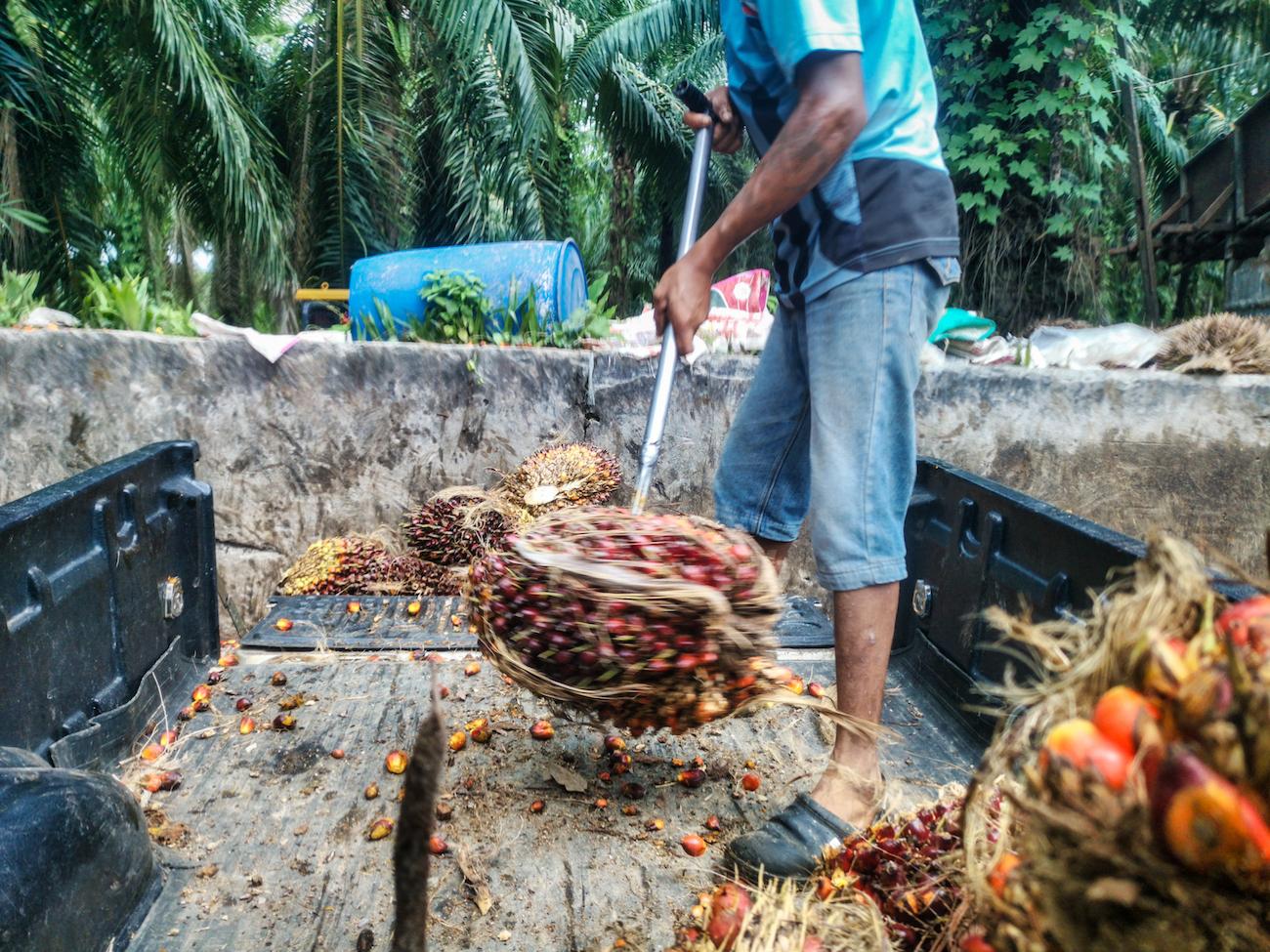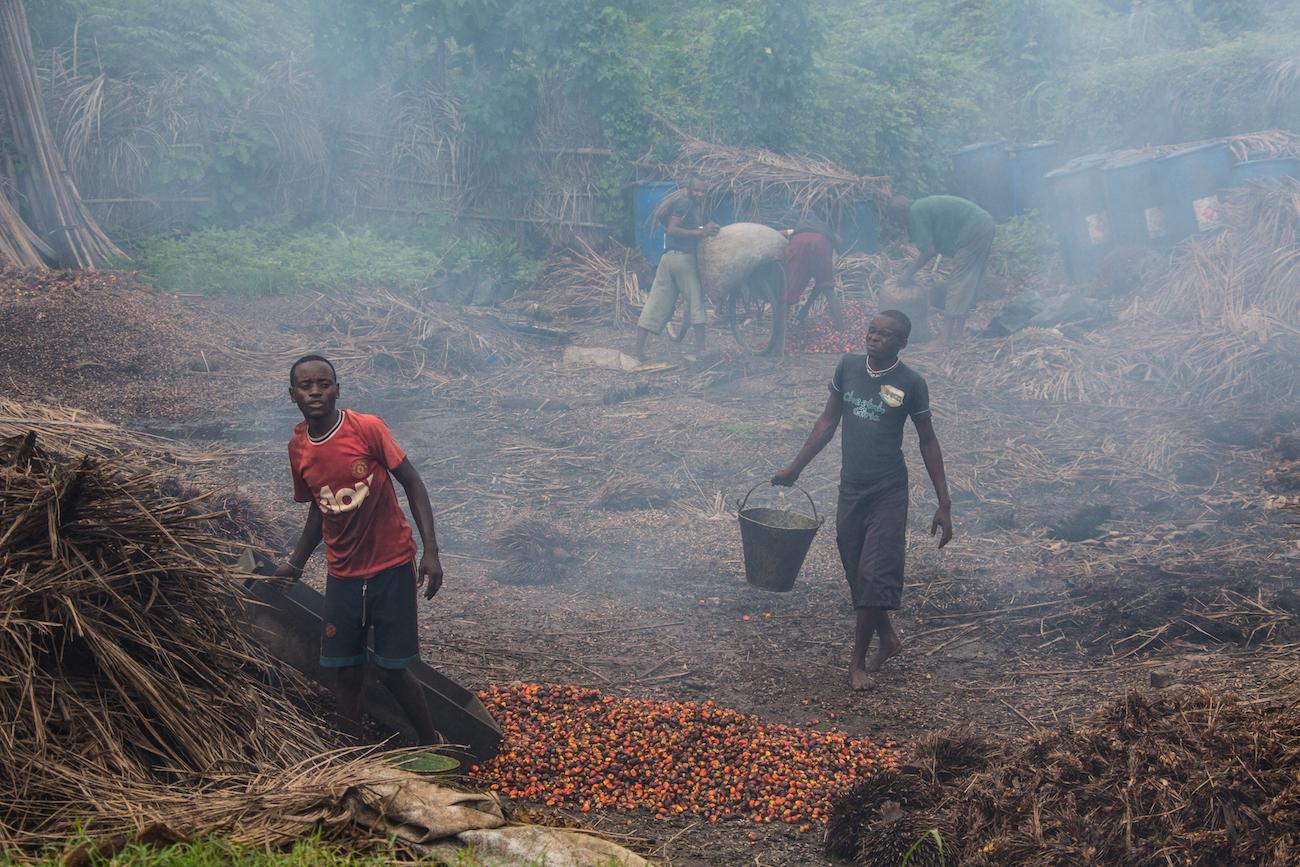Is Palm Oil Bad? Everything You Need to Know About the Controversial Ingredient
Here are answers to some of the internet's most-asked questions about palm oil.
Updated Feb. 17 2020, 1:46 p.m. ET

If you try your best to shop ethically and sustainably, you've probably seen products that boast they are "palm oil-free" or claim that their palm oil was sustainably harvested. You may have also noticed some strong opinions on palm oil in the environmentalist community: some people refuse to eat any food or buy any cosmetics made with palm oil, while others will only buy "sustainable" palm oil, while others who are not bothered by palm oil at all.
Palm oil has become quite controversial over the past few years, as more and more people have learned about the industry, how it impacts the environment, and how it hurts primates.
Read on for answers to some of the Internet's most-asked questions about palm oil, which should help you make an informed decision about whether it's something you want to continue consuming.
What Is Palm Oil?
Palm oil, aka palm kernel oil, is a type of vegetable oil, similar to canola oil, soybean oil, or grapeseed oil. It comes from the fleshy fruit of palm trees — specifically, oil palm trees, aka the Elaeis guineensis tree, according to the WWF.
Palm oil is the most widely traded vegetable oil on the planet, according to a study published on NCBI. That's likely because it is one of the cheapest oils available, and it produces a high yield.
Does Palm Oil Come From Palm Trees?

Yes — as mentioned above, palm oil typically comes from oil palm trees, known as Elaeis guineensis trees.
What Is Palm Oil Used For?
Palm oil is used in everything from processed foods (such as ice cream, margarine, and cookies) to makeup to personal hygiene products (like shampoo and soap) to laundry detergent to biodiesel to animal feed, according to the WWF. The organization adds that palm oil (including palm oil derivatives) can be found in nearly 50 percent of the packaged products in supermarkets.
Where Does Palm Oil Come From?

Palm trees grow best in humid, tropical climates, and the trees grown and cut down for palm oil primarily grow in Southeast Asia, Latin America and Africa. In fact, more than 80 percent of the world's palm oil grows in Malaysia and Indonesia (which are both located in Southeast Asia), according to Gro Intelligence.
How Is Palm Oil Made?
As the WWF explains, there are two types of palm oil: crude palm oil, which comes from squeezing the fleshy fruit; and palm kernel oil, which comes from crushing the kernel (aka stone) in the center of the fruit.
Is Palm Oil Bad for the Environment?

While high yielding crops are generally pretty sustainable, that is not true in the case of palm oil.
Palm oil is primarily harvested from palm trees that grow in rainforests — and as explained by Rainforest Rescue, developers often bulldoze or set fire to land in rainforests to make room for more palm oil plantations. This process releases the greenhouse gas CO2 into the atmosphere, all the while destroying animal habitats.
Does Palm Oil Cause Deforestation?
As mentioned above, developers often torch and bulldoze areas of biodiverse rainforests to create palm oil plantations. This results in deforestation, destroying habitats of wild animals native to rainforests — namely, orangutans (as well as other primates, rhinos, elephants and tigers, according to the BBC). According to Orangutan Foundation International, palm oil is the No. 1 cause of orangutan extinction.
When news of the Amazon rainforest fires shook the world in August 2019, many people were shocked to find out the main causes of the fires. According to the WWF, humans have clear-cut 17 percent of the Amazon rainforest over the past five decades. 80 percent of that destruction is for cattle ranching (raising cows for meat and dairy), and the remaining 20 percent is to grow (and then cut down) trees to produce palm oil, paper products, wood, and more.
There are also many reports of the palm oil industry exploiting laborers and using child labour. Check out this piece by Amnesty International to learn about labor in the palm oil industry, and why sustainable palm oil claims are not always legitimate.
Is Sustainable Palm Oil Really Sustainable?
Some brands claim their products are made with sustainably-harvested palm oil — but considering how flawed the industry is, is that really possible?
One of the primary organizations that certifies sustainable palm oil is the non-profit Roundtable on Sustainable Palm Oil (RSPO). The organization only certifies products that use palm oil that does not directly cause deforestation, fires, and child labor.
It's worth noting that the RSPO does have oil palm producers as stakeholders — though it has environmental organizations as stakeholders as well, in an effort to produce palm oil in both a lucrative and sustainable way.
Because the palm oil industry has a stake in the RSPO, I take the organization's endorsements with a grain of salt. Do your own research on the RSPO (and other sustainable palm oil certification groups) before trusting their advice, since everyone has different comfort levels when it comes to supporting controversial industries.
How to Know if a Product Contains Palm Oil
Just because a product doesn't include "palm oil" on the ingredients list doesn't mean it is palm oil free. For one thing, some products that may contain palm oil are not required to list their ingredients, such as laundry detergent and biodiesel. Additionally, numerous common label ingredients are derived from palm oil, but it's hard to tell based on the name. According to WWF, a few ingredients that are sometimes (but not always) derived from palm oil include:
Vegetable Oil, Vegetable Fat, Palm Kernel, Palm Kernel Oil, Palm Fruit Oil, Palmate, Palmitate, Palmolein, Glyceryl, Stearate, Stearic Acid, Elaeis Guineensis, Palmitic Acid, Palm Stearine, Palmitoyl Oxostearamide, Palmitoyl Tetrapeptide-3, Sodium Laureth Sulfate, Sodium Lauryl Sulfate, Sodium Kernelate, Sodium Palm Kernelate, Sodium Lauryl Lactylate/Sulphate, Hyrated Palm Glycerides, Etyl Palmitate, Octyl Palmitate, and Palmityl Alcohol.
Is Palm Oil Vegan?
Palm oil is technically vegan, since it is completely plant-based and does not come from the body of animals. However, because primates are often directly hurt by the palm oil industry, many vegans and environmentalists do their best to avoid palm oil — even though that is sometimes impossible, considering how many ingredients sneakily contain palm oil.
Should I Avoid Palm Oil?
Avoiding palm oil entirely is extremely difficult. It is impossible to know if some ingredients are palm oil-derived, other ingredients and products do not disclose their ingredients, and restaurants may cook with palm oil. If the palm oil industry is not an industry you'd like to support, there are a few tricks that may help you avoid palm oil (for the most part).
As a pretty easy first step, you can abstain from buying products that explicitly contain palm oil; you can also choose to support companies that state their products are certified palm oil-free; and finally, because palm oil is difficult to 100 percent avoid, you can work to lower the impact of your diet and purchases in other ways — for example, buy vegan, cruelty-free, and locally-made food and products whenever possible.